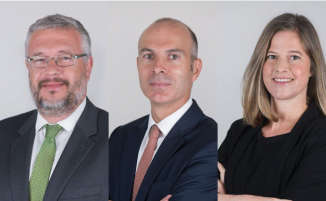The cement industry is one of the oldest industries in Egypt, with more than a century of experience, and a total of 18 plants throughout the country. For decades, the cement industry was one of the most profitable business in Egypt, with EBITDA margin above 30%. Following the Arab Spring in early 2011, the cement industry is facing two main challenges, the increase of the production cost and capacity as outlined below.
1. Increase of the Production Cost
a) Egypt’s cement producers used to run their plants on gas as a main source of energy. However, after the Egyptian revolution in 2011, the gas price went significantly high from US$2 per mBtu to US$6 per mBtu, which consequently entailed the increase of the production cost.
As an alternative, the biggest cement companies started to invest in coal and petroleum coal as a source of energy, in order to reduce the production cost. The immediate impact was the heavy investment in coal mill, regardless of the environmental impact.
The coal is mostly imported, with difficulties related to the instability of the international market price, and the freight that can be delayed, as we recently witnessed the Suez Canal blockage crisis. In addition, in late 2016, the Central Bank of Egypt decided to fully float the Egyptian Pound and the latter lost half of its value.
b) In 2014, Law No. 198 of 2014 on the Mining Wealth was issued, as amended (the Mining Law), and has drastically increased the value of the minerals and raw materials, which are essential to the cement industry. The increase reached more than 500 times the prices previously paid by the producers.
The legislator, in application of the principle of non-retroactivity of the law, explicitly stipulated that all existing contracts concluded under previous laws shall remain in force under the provisions of such laws till the expiration of the relevant licence, when the provisions of the Mining Law will prevail. The first paragraph of Article 3 of the Articles of Issuance of the Mining Law states that:
‘The quarries licences that were issued prior to the effective date of the New Mining Law as well as the terms thereof shall remain and continue to be valid and in force. However, upon renewing the said licences; the provisions stated in the New Mining Law, regarding the annual rent, royalties and research and exploitation licence fees, shall be applied.’
Furthermore, the Egyptian State Council’s General Assembly of Advising and Legislating Sections issued an advisory opinion, confirming that the increase in the value of the annual rent and royalty, introduced by the Mining Law, shall not apply on ongoing contracts, unless the parties agreed otherwise or upon renewal of the duration of the contracts.
As a consequence, the cement companies having ongoing valid contracts started to negotiate the raw materials’ cost with the competent authorities, namely the governorates, in order to reach a reasonable price for all parties involved. Unfortunately, most of said companies failed to reach an agreement thereon and some were forced to escalate the issue before the Investment Dispute Resolution Committee at the General Authority for Investment and Free Zones (GAFI).
In addition, Law No. 193 of 2020 has transferred the management and exploitation of the quarries to the Egyptian Company for Mining Management and Exploitation of Quarries and Saline, an Armed Forces related company.
2. Increase of the Production Capacity
In 2014, a new player joined the industry. The Egyptian government started to invest in cement plants, in order to supply the needs of the government for national projects and infrastructures and decrease the cement price.
Today, the state-owned cement companies represent around 25% of the Egyptian production capacity.
These new state-owned cement companies contributed to an over-capacity of the Egyptian cement market and therefore heavily impacted the cement price, which has dropped since then.
Unfortunately, the increase of the production cost of the cement, as explained above, had an impact on the competitiveness of Egypt in the industry and export of cement to nearby countries, essentially because the production cost in other countries is lower, as is the case in Turkey, playing today one of the leaders of the cement market in the region.
Therefore, the option of exporting the over-capacity abroad is not even considered by the Egyptian producers.
Following several meetings between the Minister of Industry and Trade and the Cement Association, the Egyptian government considers the possibility of decreasing the gas price and also decreasing the market production capacity to reach 65% of the current capacity, pro rata to each producer’s share in the market, and increasing the cement price.
However, to date, the Egyptian government did not issue any decree to resolve the said challenges and the cement producers are frustrated for the lack of any concrete decision therefrom. Many are considering decreasing their investment in Egypt and others are considering filing a case before the International Centre for Settlement of Investment Disputes (ICSID) against the Egyptian government.
















